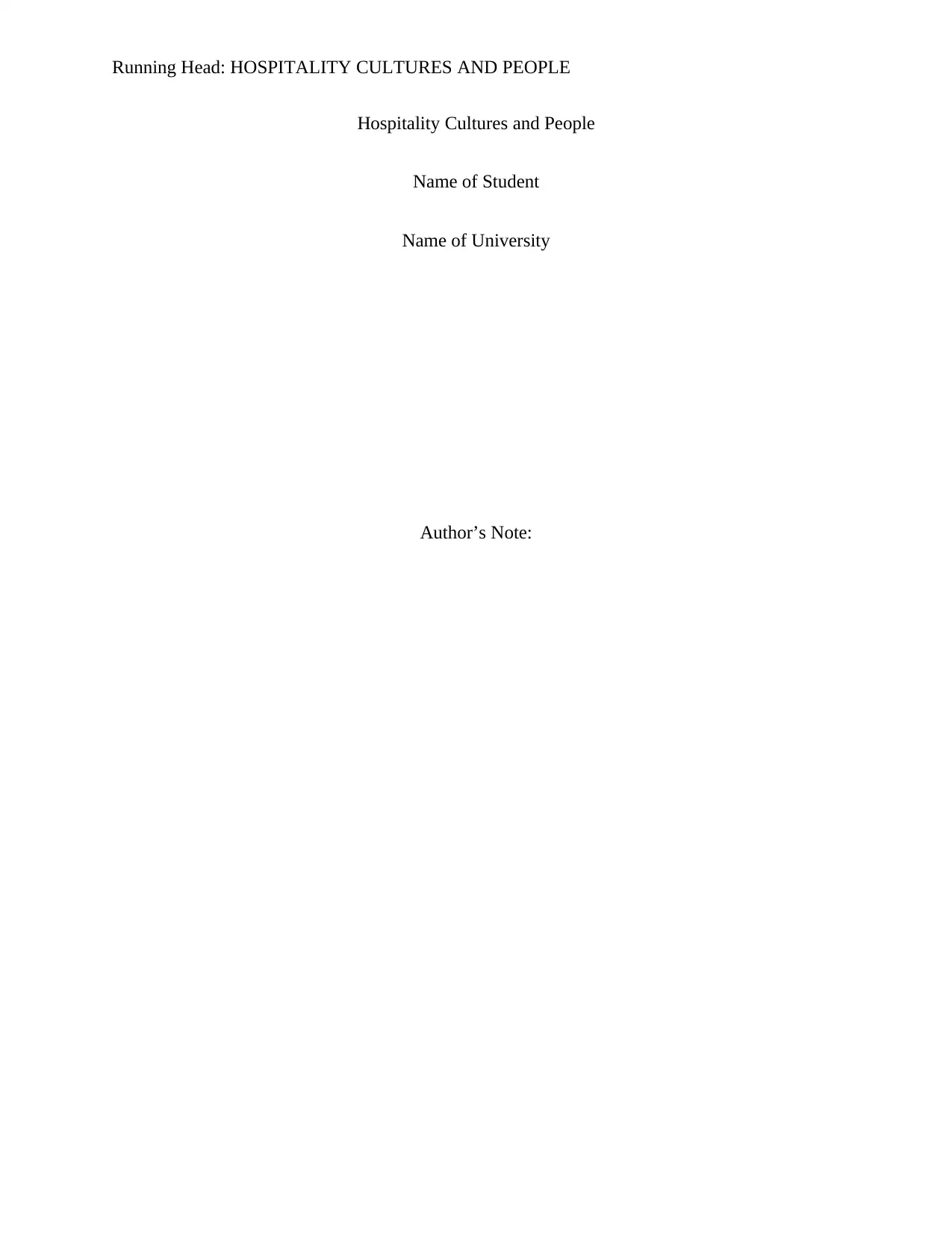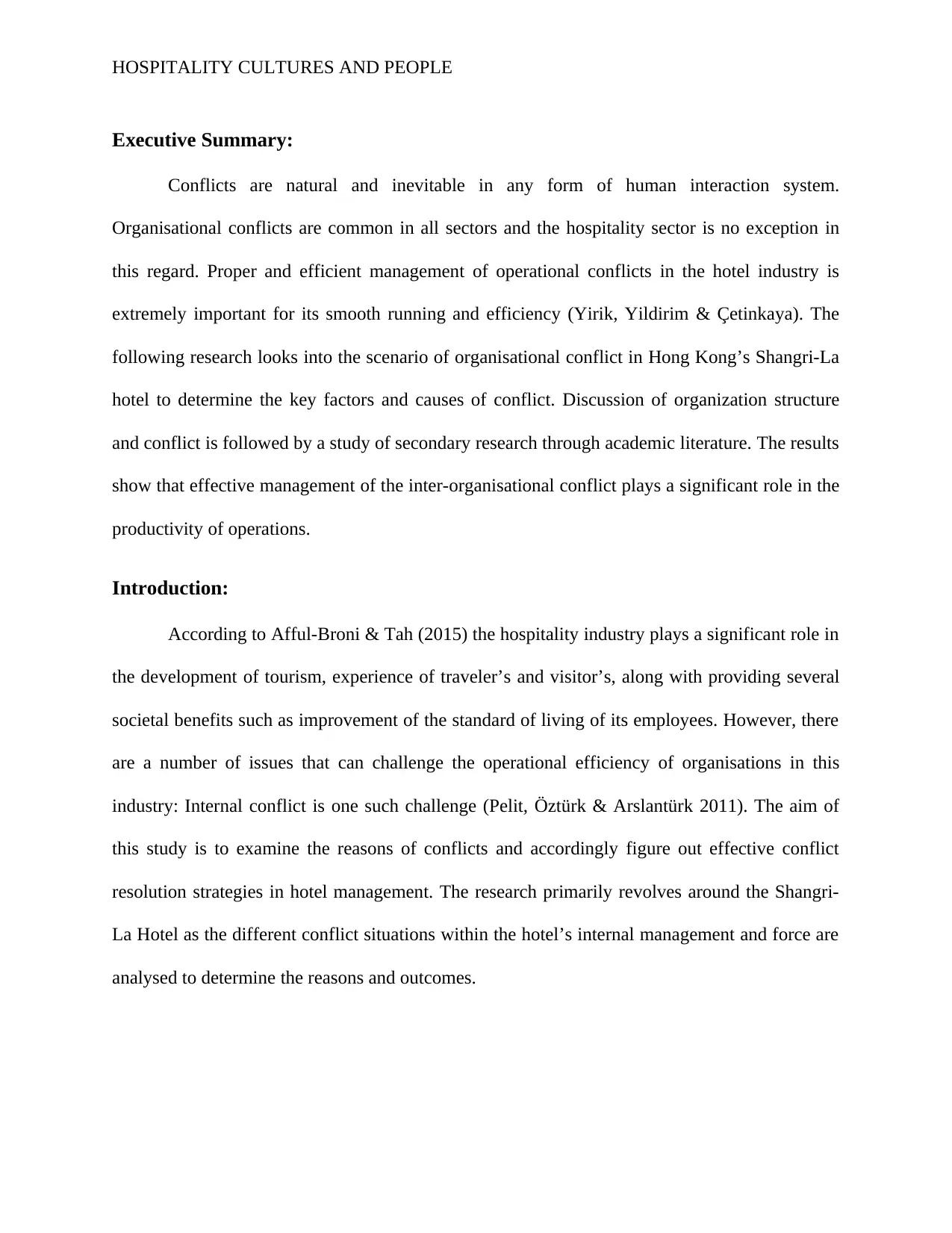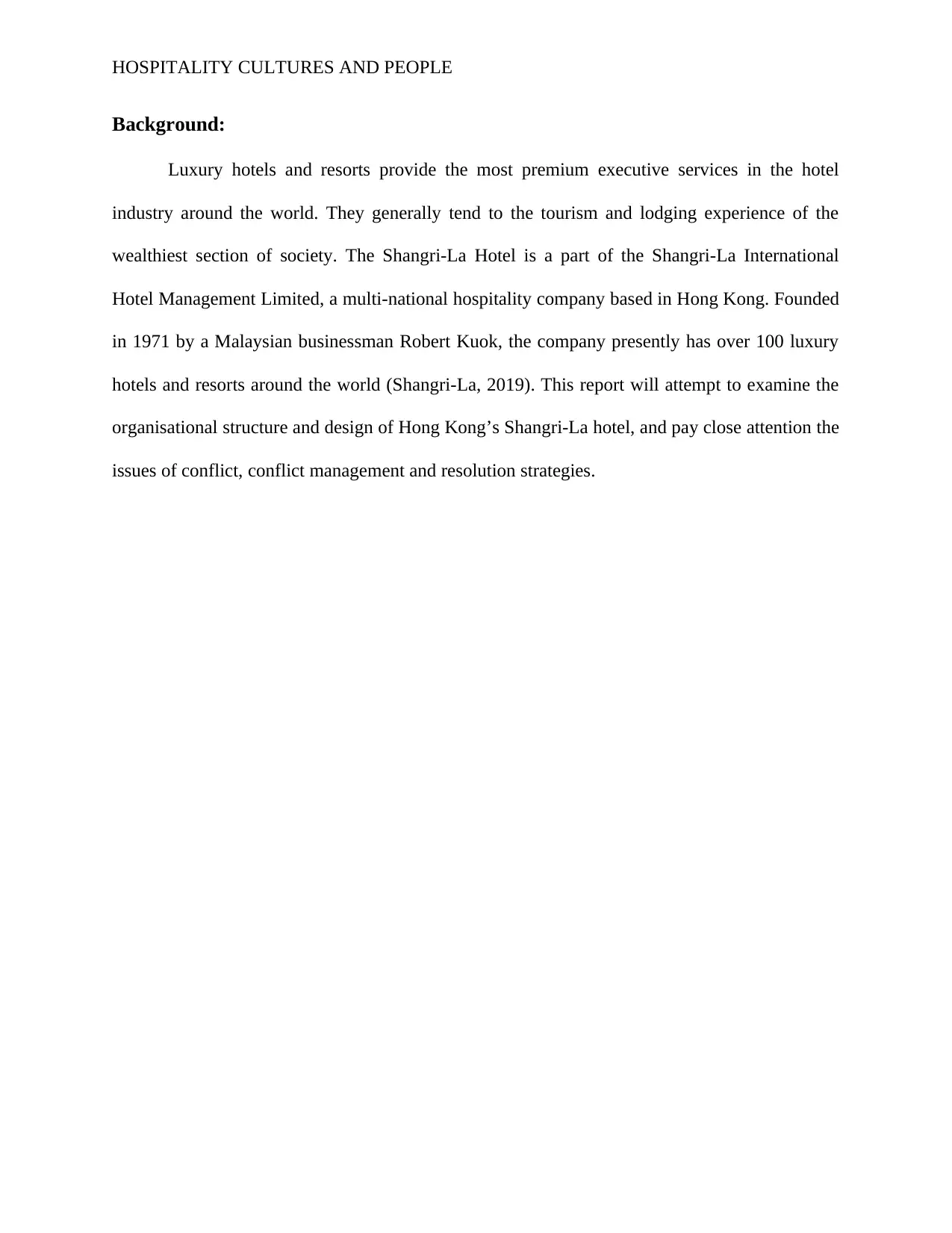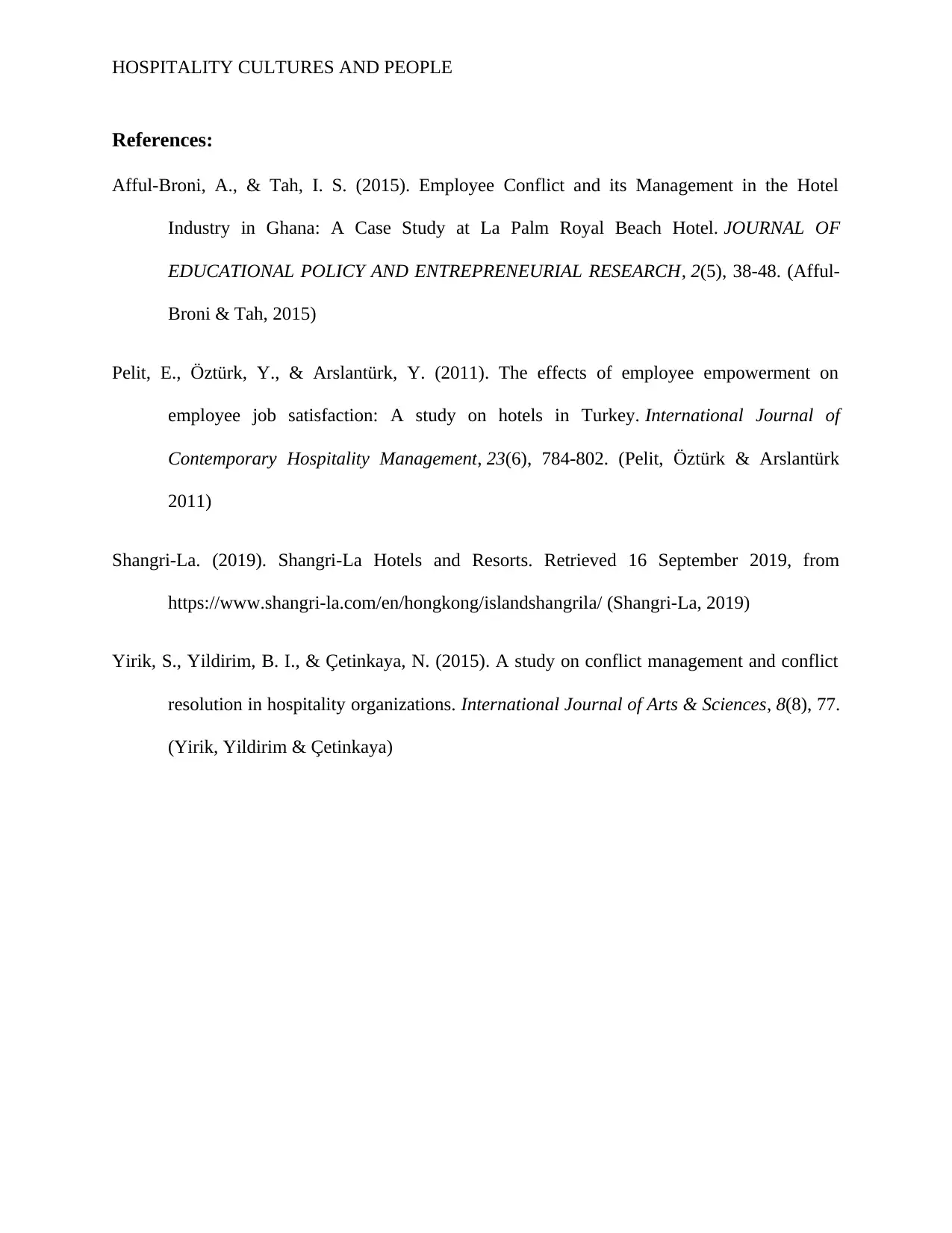BX2195: Shangri-La Hotel Conflict Management Analysis Report
VerifiedAdded on 2023/04/03
|4
|496
|330
Report
AI Summary
This report, prepared for the BX2195 course, delves into the complexities of organizational conflict within the hospitality industry, using the Shangri-La Hotel in Hong Kong as a focal point. It begins with an executive summary outlining the research's purpose, methodology, and key findings. The introduction sets the stage by highlighting the significance of the hospitality sector and the challenges posed by internal conflicts. The report then provides background information on the Shangri-La Hotel, followed by a literature review that explores the selected topic of conflict management. The core of the report involves a discussion and analysis of conflict situations within the Shangri-La Hotel, applying the literature review to the company. It examines the organizational structure, design, and conflict management strategies. Finally, the report provides recommendations for improvement, references, and appendices, offering a comprehensive analysis of conflict resolution in a hospitality setting. The study emphasizes the importance of effective conflict management for operational efficiency and productivity within the hotel industry.
1 out of 4





![[object Object]](/_next/static/media/star-bottom.7253800d.svg)